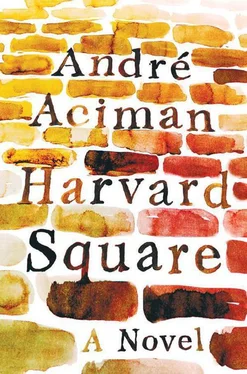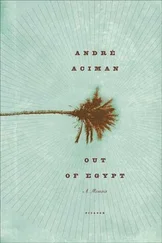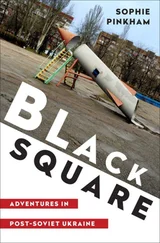“And I never invited you,” meaning we were even, no harm done, no offense taken. “It’s just that you guys keep to yourselves a lot, and I didn’t want to be the pushy-neighbor type.”
She thought about it. “You’re really wrong about us,” she said.
When the water boiled, I showed her how to turn the coffeemaker upside down. I dragged out the whole process a bit, if only to show her something she’d never seen before. “The coffee comes out milder though still quite strong,” I said.
Then we listened to the Brahms. We drank lattes. “Brahms is so autumnal.”
“Yes,” she said, “Brahms is so autumnal.”
It was the sound of the clarinet, almost keening with melancholy while trying to seem serene, that made the music so suitable for the two of us on this late, late fall afternoon.
And all along I was thinking: Would it be crossing a line to kiss her now?
And something told me that it would be.
And I didn’t have it in me to argue.
My dynamo had run cold. Kalaj would have called her la quarante-trois.
I so envied the life in Apartment 43.
I SAW KALAJ at the Harvest a few nights later. I was with another woman. She was one of my students at the Harvard Extension School. She was older than I was and was an actuary taking my Italian class in preparation for her trip to Italy the following summer. She herself was a third-generation Italian, dark hair, swarthy skin, and beautiful lips over which she tended to use too much lipstick. One evening after class she had waited until everyone had left the classroom to ask me if I would consider having dinner with her. “Why not,” I said, trying to conceal my surprise.
“When would be good?” she asked.
“I am free tonight,” I had said, to make her feel at ease, seeing she seemed slightly uncomfortable.
This was our second date.
What happened to Allison? he asked merely by arching an eyebrow. I shook my head to suggest: Let’s not talk about it. It didn’t work out. He shrugged his shoulder as discreetly as he could, meaning: You’re just hopeless. That was a serious mistake. I tilted my head in a resigned: Well, what can we do? C’est la vie. While we were exchanging gestured messages, he was charming my new friend. “No, not Saudi Arabia — with my skin? No, not Algeria either, not Morocco, but a little place called Sidi Bou Saïd, the most beautiful whitewashed town on the Mediterranean south of Pantelleria…”
She was won over. For a second I saw us having dinners together, rides to Walden Pond next spring, Sunday evenings Chez Nous listening to Sabatini’s free guitar recitals followed by the one-dollar films at the Harvard Epworth Church.
“I am glad I had a chance to meet you,” he said, “because I may never see you again.”
Blank stare. Why?
“I’m leaving.”
“For how long?” she asked.
“For good,” he replied.
A quizzical gesture from my eyes meant: When?
“In one week.”
And then, as he’d always done whenever taking his leave, he abruptly wished us bonne soirée and walked away. He figured I needed to be alone with her.
I watched him walk around the horseshoe bar on his way out of the Harvest, then, once he’d stepped outside, stop, cup his hands around his mouth, and light a cigarette. Having lit it, he ambled out toward Brattle Street, pacing his way ever so slowly, pensive and hesitant, as though unsure whether to go to Casablanca or just linger a while longer and take in this spot for what could very well be his last time.
“Strange character,” she said.
“Very strange.”
“Friend?” she asked.
“Sort of.” I caught sight of him once again, as he turned around the patio on his way to Casablanca, and from there most likely heading back to Café Algiers. Something told me to take a mental picture of him threading his way through the back courtyard toward Casablanca. Then I forgot about the mental picture. I was thinking of other things when it occurred to me that perhaps I’d been spared tearful goodbyes, the hugs, the flimsy jokes to undo the knot in our throats. It felt like giving a dying friend massive doses of morphine to avoid a mournful and conscious farewell.
Why had I said sort of when it should have been clear to me that he was the dearest soul I’d met in all my years at Harvard?
HE CALLED ME three days later. I was in my office with a student discussing her paper. He knew the drill. “I’ll ask you questions, and you answer yes or no.”
“Yes,” I said.
“Can you see me soon?”
“No.”
“Can you see me in one hour?”
“No. Teaching.”
“Can I come and pick you up in two hours?” This I certainly wanted to discourage. “No.”
“I’ll call you later tonight then.”
When he called me that evening, he told me that earlier in the day he had needed an interpreter for an interview with Immigration Services. Why hadn’t he told me so? “You couldn’t talk, remember?” At any rate, it didn’t matter, since Zeinab had gone downtown with him and served as his interpreter. Except he would have preferred a man from Harvard. Going with a woman who also happened to be an Arab might have sent the wrong message, what with his annulment and all that. It turned out to be a perfunctory meeting. They were closing his case.
“Do you have time for a quick drink with a few friends tonight?” he asked.
It sounded like a farewell gathering.
“Tonight I can’t.” I made it seem I wasn’t alone. I pretended to miss the passing allusion to farewells.
“Then it’s possible I may not see you. I may have to leave tomorrow. But it’s not certain.”
“Did they give you a plane ticket?”
“Immigration is not a travel agency.” He laughed at his own joke.
“But why won’t those bastards tell you when you’re leaving?” I was making it seem that my suppressed anger was directed at the immigration folks, and that I needed to confront their outrageously incomprehensible behavior before dealing with the lesser matter of bidding a friend farewell forever. All I was doing was making noise to prevent him from asking me once again to join him for drinks with his friends.
He knew. He was far better at this than I.
It took me a few moments to face the terrifying fact that what I wanted to avoid at all costs was tearful goodbyes. I did not want him crying. I did not want to cry myself. No hugs. No effusive promises. No languid words that spoke more sorrow than either knew he nursed. No messy feelings. Just a clean break. I was totally and irredeemably ersatz.
“I’ll call you tomorrow and let you know where things stand. Bonne soirée. ”
I spent almost all of the next day at Widener Library, away from every phone. It was high time I started making notes of the things I needed to spill back during my comprehensives.
Later that afternoon when I got home, a piece of torn paper was stuck into my mailbox. I thought it was from Ekaterina. “ We tried to reach you. Kalaj said you must have gone to the library. He didn’t want to disturb you there. He asked me to say goodbye for him. Zeinab. ”
All I remember feeling at that moment was a pang of something I could never name, because it hovered between unbearable shame and unbearable sorrow. I had done this. No one else. Never had I sunk so low in my life. I felt like someone who has been putting off dropping in on a dying friend. Each time the dying person calls him and asks him to come by for a few minutes, the friend, on the pretext of trying to lift up the sick man’s spirits, makes light of his worries. I’ll try to come tomorrow. “There may not be a tomorrow,” the dying man says. “There you go again. You watch, you’ll outlive us all.”
Читать дальше












